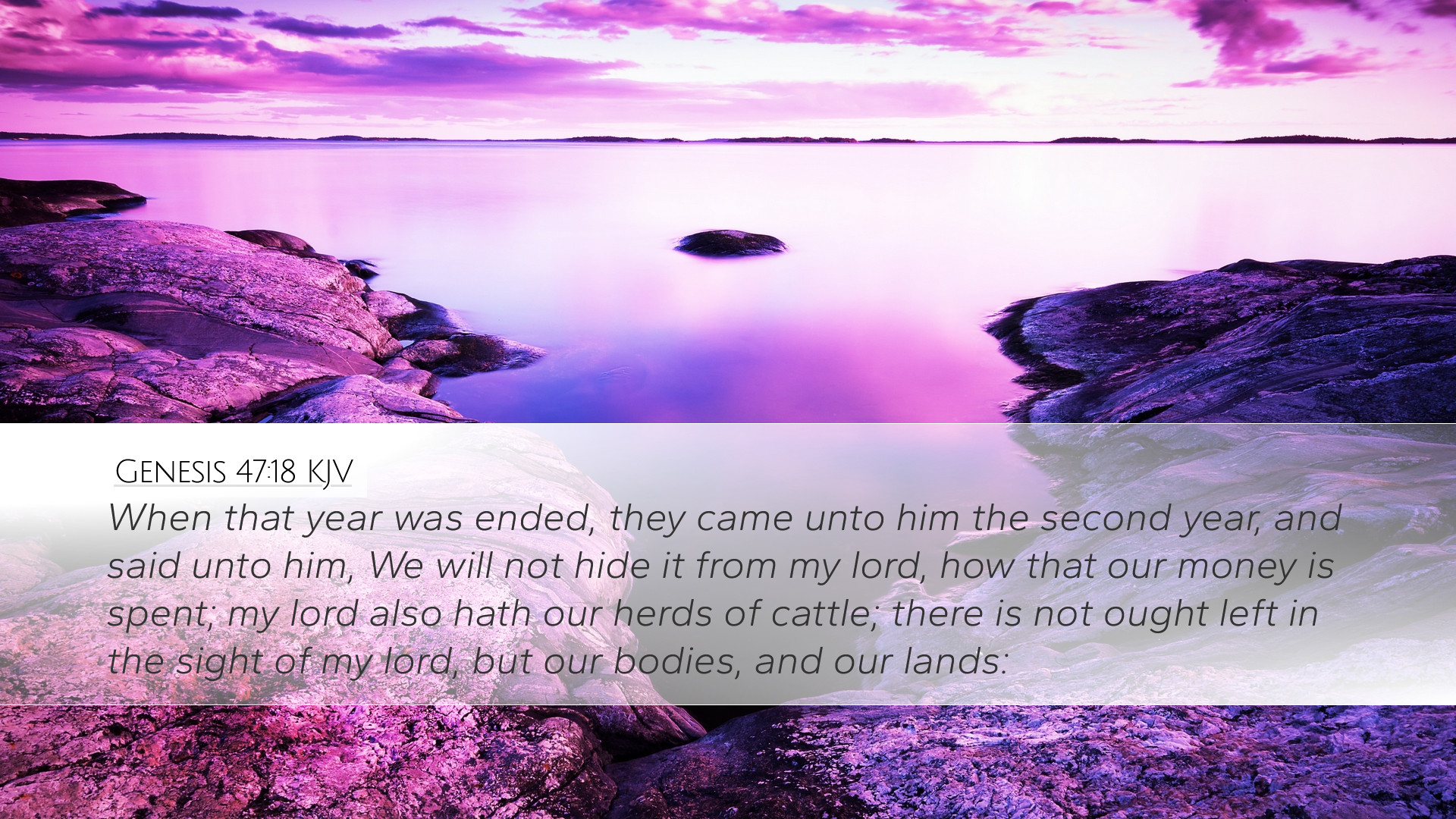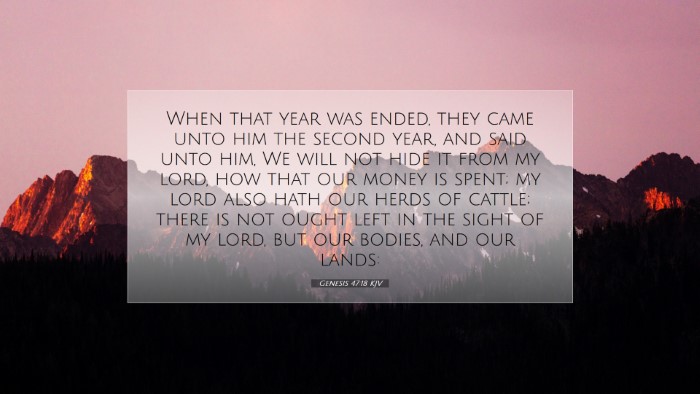Commentary on Genesis 47:18
Genesis 47:18 reads:
"When that year was ended, they came unto him the second year, and said unto him, We will not hide it from my lord, how that our money is spent; my lord also hath our herds of cattle; there is not ought left in the sight of my lord, but our bodies and our lands."
Contextual Background
This verse appears within the narrative of Joseph’s administration of Egypt during a time of severe famine. Following the initial relief efforts which included redistributing grain, the Egyptians found themselves in dire straits. As their monetary resources depleted, they came before Joseph, illustrating the desperation of the people and the reach of the famine.
Insights from Matthew Henry
Matthew Henry emphasizes the plight of the Egyptians, underscoring their complete dependence on Joseph’s provision. He notes:
- The Impact of Famine: Henry explains that famine reduces people to utter poverty, stripping them of their wealth and livestock, to the point where they only have themselves and their lands left.
- The Request for Relief: The Egyptians appeal to Joseph, indicating not just their physical need but their recognition of Joseph’s authority. This act reflects profound humility and the realization that their previous resources are insufficient for survival.
Insights from Albert Barnes
Albert Barnes takes a more analytical approach, focusing on the implications of surrendering everything to survive:
- The Loss of Autonomy: Barnes points out that the Egyptians had to relinquish not only their money and cattle but also their freedom and land. This raises ethical questions regarding the role of government or leadership during a catastrophe.
- The Role of Joseph: He is portrayed as a shrewd but benevolent leader who is managing the crisis rather than exploiting it, suggesting the qualities of effective leadership in times of trouble.
Insights from Adam Clarke
Adam Clarke connects this incident to broader themes in Scripture regarding human vulnerability and divine providence:
- Human Humility: Clarke reflects on how this experience serves to illustrate the frailty and dependence of humankind on God’s provision, emphasizing the necessity of seeking divine assistance in times of trouble.
- Typological Significance: Clarke draws parallels between Joseph’s actions and Christ, noting that just as Joseph was a savior during a time of famine, so too is Jesus the ultimate provider for spiritual famine, offering life and sustenance to the lost.
Theological Reflections
As we examine Genesis 47:18, several theological insights emerge:
- Understanding Desperation: The entry of the Egyptians into a dire state where they offer their very lives underscores the human condition — that we often arrive at a point where only God can provide true sustenance.
- God’s Sovereignty in Crisis: This passage shows how God can use even famine to accomplish His purposes — Joseph's rise to power and the well-being of his family amidst adversity.
- Providing for Others: The attitude displayed by Joseph exemplifies pastoral care; he not only provides for physical needs but addresses the emotional and spiritual weight of dependence through his leadership.
Application for Today
As pastors, theologians, and students of the Word reflect on this passage, several key applications arise:
- Responding to Need: The contemporary church is encouraged to assess how it responds to local and global crises, learning from Joseph to provide tangible aid and soul care.
- Embracing Humility: The importance of humility in recognizing our collective dependence on God cannot be overstated; congregations should foster environments where such dependence is openly acknowledged.
- Leadership in Troubling Times: Leaders should be motivated to model sacrificial servant leadership, much like Joseph, setting an example of compassion and righteousness in governance.
Conclusion
In summary, Genesis 47:18 presents a profound exploration of human struggle in the face of desperation, revealing deep truths about the nature of leadership, the necessity of divine provision, and the importance of humility. As we meditate on this passage, may it encourage us to remain steadfast in our roles as providers and servants in a world that is often in despair.


